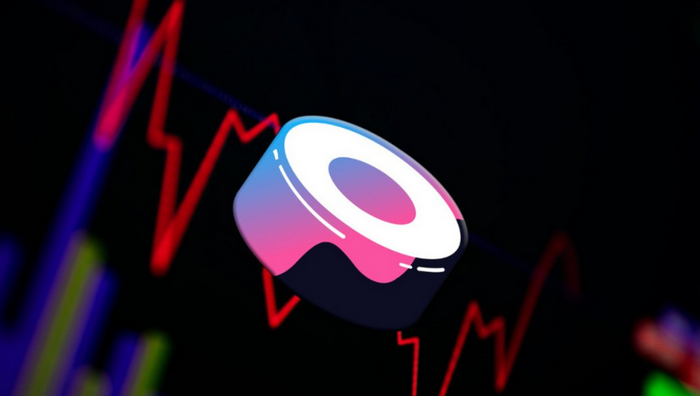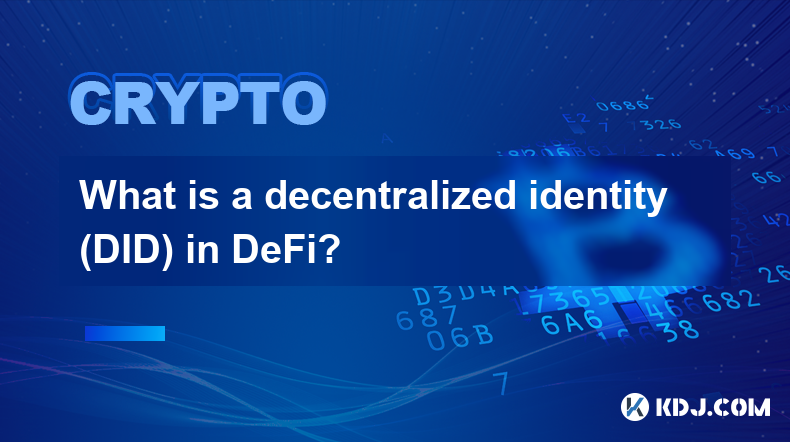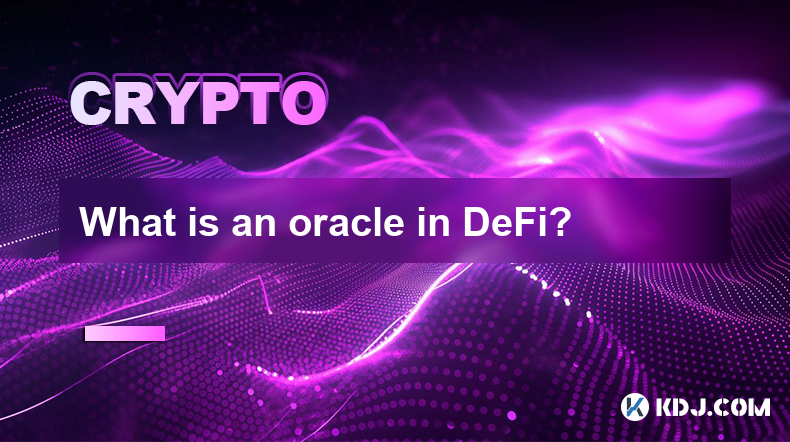-
 Bitcoin
Bitcoin $83,649.7703
-1.06% -
 Ethereum
Ethereum $1,818.4708
-2.72% -
 Tether USDt
Tether USDt $1.0000
0.01% -
 XRP
XRP $2.0495
-3.21% -
 BNB
BNB $597.8591
-1.20% -
 Solana
Solana $118.6021
-5.26% -
 USDC
USDC $1.0000
0.01% -
 Dogecoin
Dogecoin $0.1642
-3.52% -
 Cardano
Cardano $0.6526
-2.99% -
 TRON
TRON $0.2343
-0.56% -
 Toncoin
Toncoin $3.7346
-7.00% -
 UNUS SED LEO
UNUS SED LEO $9.4260
0.63% -
 Chainlink
Chainlink $12.9796
-3.63% -
 Stellar
Stellar $0.2617
-1.79% -
 Avalanche
Avalanche $18.3920
-4.15% -
 Sui
Sui $2.3105
-2.61% -
 Shiba Inu
Shiba Inu $0.0...01222
-0.74% -
 Hedera
Hedera $0.1630
-1.67% -
 Litecoin
Litecoin $83.6143
1.85% -
 Polkadot
Polkadot $4.0068
-2.05% -
 MANTRA
MANTRA $6.3564
2.37% -
 Bitcoin Cash
Bitcoin Cash $306.7380
0.76% -
 Bitget Token
Bitget Token $4.5736
-0.36% -
 Dai
Dai $1.0001
0.01% -
 Ethena USDe
Ethena USDe $0.9998
0.00% -
 Pi
Pi $0.6284
-6.81% -
 Hyperliquid
Hyperliquid $11.9330
-10.11% -
 Monero
Monero $213.7810
-0.49% -
 Uniswap
Uniswap $5.9757
-2.02% -
 Aptos
Aptos $5.2294
-1.01%
What is the market prospect of SUSHI coins? Is SUSHI coin worth holding for a long time?
Despite facing potential risks, SUSHI coin's integration with DeFi protocols and its community governance model suggest long-term holding potential for investors who believe in the growth of the DeFi ecosystem.
Oct 02, 2024 at 07:24 am

Market Prospects and Long-Term Holding Potential of SUSHI Coin
1. Market Overview
SushiSwap is a decentralized exchange (DEX) protocol that allows users to swap tokens directly without an intermediary. Its native token, SUSHI, serves as a governance token and is used to reward liquidity providers.
2. Market Performance and Growth
Since its launch in August 2020, SUSHI has experienced significant growth. As of January 2023, it ranks among the top 100 cryptocurrencies by market capitalization. The token's all-time high of $23.38 was reached in March 2022.
3. Adoption and Partnerships
SushiSwap has established partnerships with several major projects, including Aave, Curve, and Yearn Finance. These integrations have enhanced its liquidity and interoperability within the decentralized finance (DeFi) ecosystem.
4. DeFi Integration and Yield Farming
SUSHI is used in various yield farming strategies, allowing holders to earn passive income by staking their tokens and providing liquidity to liquidity pools. This feature has attracted many DeFi enthusiasts and liquidity providers.
5. Governance and Protocol Upgrades
SUSHI holders have voting rights in the SushiSwap protocol. They can participate in governance decisions, such as protocol updates, fee structures, and new product offerings. This community governance aspect strengthens the project's long-term viability.
6. Potential Risks and Challenges
Despite its growth, SUSHI faces potential risks, including volatility, regulatory uncertainty, and competition from other DEX protocols.
Is SUSHI Coin Worth Holding for a Long Time?
The decision to hold SUSHI for the long term depends on several factors:
1. Market Outlook:
The crypto market is highly volatile, and SUSHI's price can fluctuate significantly. Investors should have a long-term horizon and be prepared for price swings.
2. DeFi Adoption:
If DeFi continues to gain traction, platforms like SushiSwap and their native tokens will benefit from increased demand.
3. Protocol Enhancements:
Ongoing protocol upgrades and new integrations can enhance SUSHI's utility and value proposition.
4. Risk Tolerance:
Investors should assess their own risk tolerance and financial situation before making any investment decisions.
Conclusion
SUSHI coin has the potential for long-term appreciation if the DeFi ecosystem continues to grow and SushiSwap maintains its competitive position. However, investors should carefully consider the risks involved and conduct thorough research before making any investment decisions.
Disclaimer:info@kdj.com
The information provided is not trading advice. kdj.com does not assume any responsibility for any investments made based on the information provided in this article. Cryptocurrencies are highly volatile and it is highly recommended that you invest with caution after thorough research!
If you believe that the content used on this website infringes your copyright, please contact us immediately (info@kdj.com) and we will delete it promptly.
- Ernst & Young (EY) Unveils Nightfall_4, a Zero-Knowledge (ZK) Rollup Architecture
- 2025-04-03 16:45:13
- Investing in racehorses has traditionally been the preserve of the super wealthy and elite
- 2025-04-03 16:45:13
- Bitcoin price struggles on its daily charts as crypto market liquidations cross $500M.
- 2025-04-03 16:40:12
- TRON Founder Justin Sun Accuses First Digital Trust (FDT) of Insolvency
- 2025-04-03 16:40:12
- Coin Master Free Spins Links April 3, 2025
- 2025-04-03 16:35:13
- Ripple Integrates Its Newly Released Stablecoin RLUSD into Its Flagship Payments Solution
- 2025-04-03 16:35:13
Related knowledge

What is a decentralized identity (DID) in DeFi?
Mar 23,2025 at 11:57am
Key Points:Decentralized Identifiers (DIDs) offer a self-sovereign approach to digital identity management, crucial for DeFi's privacy and security needs.DIDs operate independently of centralized authorities, empowering users with control over their data.Integrating DIDs into DeFi applications enhances user privacy, reduces reliance on intermediaries, a...

What does "composability" mean in DeFi?
Mar 14,2025 at 12:36pm
Key Points:Composability in DeFi refers to the ability of different decentralized finance (DeFi) protocols to interact and combine seamlessly, creating novel financial products and services.This interoperability is a core tenet of the DeFi ecosystem, fostering innovation and efficiency.Understanding composability requires exploring its mechanisms, benef...

What is token economics in DeFi?
Mar 14,2025 at 03:20am
Key Points:Token economics in DeFi defines how tokens are used to incentivize and govern decentralized finance (DeFi) protocols.It encompasses token utility, distribution mechanisms, and economic models designed to ensure sustainability and growth.Understanding token economics is crucial for evaluating the long-term viability and potential risks of DeFi...

How are transaction fees calculated in DeFi?
Mar 14,2025 at 04:25am
Key Points:DeFi transaction fees vary significantly depending on the specific protocol, network congestion, and the complexity of the transaction.Gas fees, a crucial component, are paid in the native token of the blockchain (e.g., ETH on Ethereum).Factors influencing gas fees include the type of transaction, data size, and network demand.Protocols often...

What is an oracle in DeFi?
Mar 22,2025 at 06:50am
Key Points:Oracles bridge the gap between on-chain and off-chain data in DeFi, providing real-world information to smart contracts.Different oracle types exist, each with its own strengths and weaknesses, including centralized, decentralized, and hybrid oracles.Security and reliability are crucial concerns for oracles, as vulnerabilities can lead to sig...

What is a cross-chain bridge? What is its role in DeFi?
Mar 14,2025 at 10:00am
Key Points:Cross-chain bridges facilitate the transfer of assets between different blockchains.They are crucial for DeFi's interoperability, allowing users to access diverse applications and liquidity pools across various networks.Several types of cross-chain bridges exist, each with its own security and scalability trade-offs.Understanding the risks as...

What is a decentralized identity (DID) in DeFi?
Mar 23,2025 at 11:57am
Key Points:Decentralized Identifiers (DIDs) offer a self-sovereign approach to digital identity management, crucial for DeFi's privacy and security needs.DIDs operate independently of centralized authorities, empowering users with control over their data.Integrating DIDs into DeFi applications enhances user privacy, reduces reliance on intermediaries, a...

What does "composability" mean in DeFi?
Mar 14,2025 at 12:36pm
Key Points:Composability in DeFi refers to the ability of different decentralized finance (DeFi) protocols to interact and combine seamlessly, creating novel financial products and services.This interoperability is a core tenet of the DeFi ecosystem, fostering innovation and efficiency.Understanding composability requires exploring its mechanisms, benef...

What is token economics in DeFi?
Mar 14,2025 at 03:20am
Key Points:Token economics in DeFi defines how tokens are used to incentivize and govern decentralized finance (DeFi) protocols.It encompasses token utility, distribution mechanisms, and economic models designed to ensure sustainability and growth.Understanding token economics is crucial for evaluating the long-term viability and potential risks of DeFi...

How are transaction fees calculated in DeFi?
Mar 14,2025 at 04:25am
Key Points:DeFi transaction fees vary significantly depending on the specific protocol, network congestion, and the complexity of the transaction.Gas fees, a crucial component, are paid in the native token of the blockchain (e.g., ETH on Ethereum).Factors influencing gas fees include the type of transaction, data size, and network demand.Protocols often...

What is an oracle in DeFi?
Mar 22,2025 at 06:50am
Key Points:Oracles bridge the gap between on-chain and off-chain data in DeFi, providing real-world information to smart contracts.Different oracle types exist, each with its own strengths and weaknesses, including centralized, decentralized, and hybrid oracles.Security and reliability are crucial concerns for oracles, as vulnerabilities can lead to sig...

What is a cross-chain bridge? What is its role in DeFi?
Mar 14,2025 at 10:00am
Key Points:Cross-chain bridges facilitate the transfer of assets between different blockchains.They are crucial for DeFi's interoperability, allowing users to access diverse applications and liquidity pools across various networks.Several types of cross-chain bridges exist, each with its own security and scalability trade-offs.Understanding the risks as...
See all articles























































































